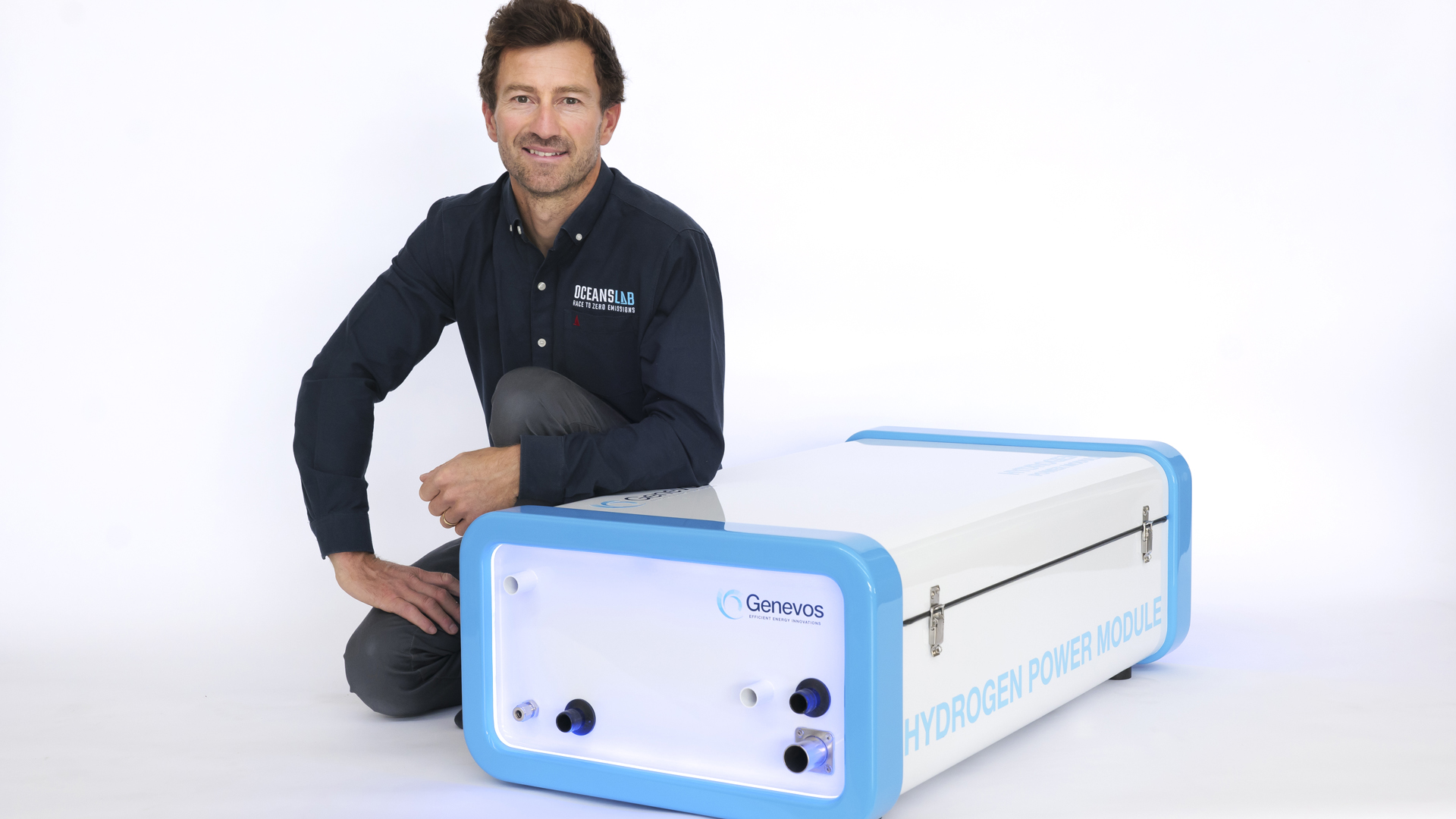
Race to Zero Emissions with Hydrogen solutions.
The Hydrogen Power Module (HPM) is a marinised plug-and-play solution to achieving zero emissions power for vessels. Water is the only by-product of the HPM, which uses a high-efficiency fuel cell to create electricity through the reaction of hydrogen sourced from renewable energy.
Free from toxic greenhouse gases, clean hydrogen has been named by the International Transport Forum as an important fuel for decarbonising maritime trade. What’s more, hydrogen created from renewables has been forecast to undercut all other forms of marine fuel by 2030.
“Fuel cells and hydrogen will play a vital role in the clean energy transition of this sector,” commented Phil Sharp, OceansLab skipper and Technical Director of Genevos. “To meet climate change goals all new boats and ships built from 2030 must be Zero Emission Vessels, using clean fuels. To achieve this, we have to start introducing this innovative technology now to ensure that we can scale up in time.”
Genevos will be producing a series of HPMs with power outputs ranging from 8 to 200 kW and capable of meeting a range of vessel sizes and energy demands. Modules can provide clean energy solutions for varied applications including primary or hybrid propulsion, in addition to powering auxiliary systems in large commercial vessels to prevent coastal and in-port emissions.
Renowned specialist in low carbon shipping and Associate Professor at UCL Energy Institute Dr Tristan Smith commented: “Zero emission technology and fuel is an inevitable future for shipping. The industry needs projects and pilots that use technologies such as the Genevos HPM, to kick-start this clean transition.”
Based in La Rochelle, Nouvelle Aquitaine, Genevos has an established research partnership with EIGSI University and its industrial power systems test centre through the development of a hydrogen lab. Testing is currently being carried out on an HPM-8 kW prototype whilst providing a focal point for research projects at the university.
Genevos are in the process of securing demonstrator partnerships for recreational and commercial hydrogen pilot projects and are interested in connecting with boat constructors looking for clean hydrogen solutions.
For more information please visit www.genevos.com.
Genevos HPM – Features
- Low Weight: Typically 60-75% lower weight than an all-electric system using the latest lithium battery technology
- Environmentally friendly: Zero emissions and virtually silent operation
- Fuel requirement: Green hydrogen which is created from electrolysers supplied with renewable energy. Hydrogen is a light, odorless gas and has been proven in industry for decades as safe to produce, store and transport.
- Plug and play: Fully-integrated systems in marinised enclosure for easy installation
- Practical: Modular and scalable for high range applications
- Efficiency: Hydrogen fuel cells are typically 2-3 times the efficiency of marine diesel engines
